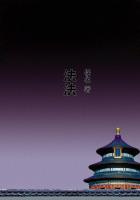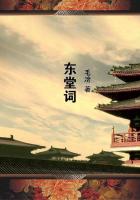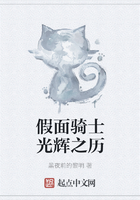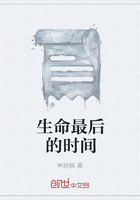A foreign critic [Dr.George Brandes, in vol.iv.of his 'Main Currents of Nineteenth Century Literature'] has summed it up by saying that England was then pre-eminently the home of cant;while in politics her native energy was diverted to oppression, in morals and religion it took the form of hypocrisy and persecution.Abroad she was supporting the Holy Alliance, throwing her weight into the scale against all movements for *******.At home there was exhaustion after war; workmen were thrown out of employment, and taxation pressed heavily on high rents and the high price of corn, was made cruel by fear; for the French Revolution had sent a wave of panic through the country, not to ebb until about 1830.Suspicion of republican principles--which, it seemed, led straight to the Terror--frightened many good men, who would otherwise have been reformers, into supporting the triumph of coercion and Toryism.
The elder generation of poets had been republicans in their youth.Wordsworth had said of the Revolution that it was "bliss to be alive" in that dawn; Southey and Coleridge had even planned to found a communistic society in the New World.
Now all three were rallied to the defence of order and property, to Church and Throne and Constitution.From their seclusion in the Lakes, Southey and Wordsworth praised the royal family and celebrated England as the home of *******;while Thomson wrote "Rule, Britannia," as if Britons, though they never, never would be slaves to a foreigner, were to a home-grown tyranny more blighting, because more stupid, than that of Napoleon.England had stamped out the Irish rebellion of 1798 in blood, had forced Ireland by fraud into the Union of 1800, and was strangling her industry and commerce.Catholics could neither vote nor hold office.At a time when the population of the United Kingdom was some thirty millions, the Parliamentary franchise was possessed by no more than a million persons, and most of the seats in the House of Commons were the private property of rich men.Representative government did not exist; whoever agitated for some measure of it was deported to Australia or forced to fly to America.Glasgow and Manchester weavers starved and rioted.The press was gagged and the Habeas Corpus Act constantly suspended.A second rebellion in Ireland, when Castlereagh "dabbled his sleek young hands in Erin's gore," was suppressed with unusual ferocity.
In England in 1812 famine drove bands of poor people to wander and pillage.Under the criminal law, still of medieval cruelty, death was the punishment for the theft of a loaf or a sheep.The social organism had come to a deadlock--on the one hand a starved and angry populace, on the other a vast Church-and-King party, impregnably powerful, made up of all who had "a stake in the country." The strain was not to be relieved until the Reform Act of 1832 set the wheels in motion again; they then moved painfully indeed, but still they moved.
Meanwhile Parliament was the stronghold of selfish interests;the Church was the jackal of the gentry; George III, who lost the American colonies and maintained negro slavery, was on the throne, until he went mad and was succeeded by his profligate son.
Shelley said of himself that he was"A nerve o'er which do creep The else unfelt oppressions of this earth,"and all the shades of this dark picture are reflected in his life and in his verse.He was the eldest son of a Sussex family that was loyally Whig and moved in the orbit of the Catholic Dukes of Norfolk, and the talk about emancipation which he would hear at home may partly explain his amazing invasion of Ireland in 1811-12, when he was nineteen years old, with the object of procuring Catholic emancipation and the repeal of the Union Act--subjects on which he was quite ignorant.He addressed meetings, wasted money, and distributed two pamphlets "consisting of the benevolent and tolerant deductions of philosophy reduced into the ******st language."Later on, when he had left England for ever, he still followed eagerly the details of the struggle for ******* at home, and in 1819 composed a group of poems designed to stir the masses from their lethargy.Lord Liverpool's administration was in office, with Sidmouth as Home Secretary and Castlereagh as Foreign Secretary, a pair whom he thus pillories:
"As a shark and dog-fish wait Under an Atlantic Isle, For the negro ship, whose freight Is the theme of their debate, Wrinkling their red gills the while--Are ye, two vultures sick for battle, Two scorpions under one wet stone, Two bloodless wolves whose dry throats rattle, Two crows perched on the murrained cattle, Two vipers tangled into one."The most effective of these bitter poems is 'The Masque of Anarchy', called forth by the "Peterloo Massacre" at Manchester on August 16, 1819, when hussars had charged a peaceable meeting held in support of Parliamentary reform, killing six people and wounding some seventy others.Shelley's frenzy of indignation poured itself out in the terrific stanzas, written in ******st language so as to be understood by the people, which tell how"I met a murder on the way--He had a mask like Castlereagh--
Very smooth he looked, yet grim;
Seven blood-hounds followed him."

